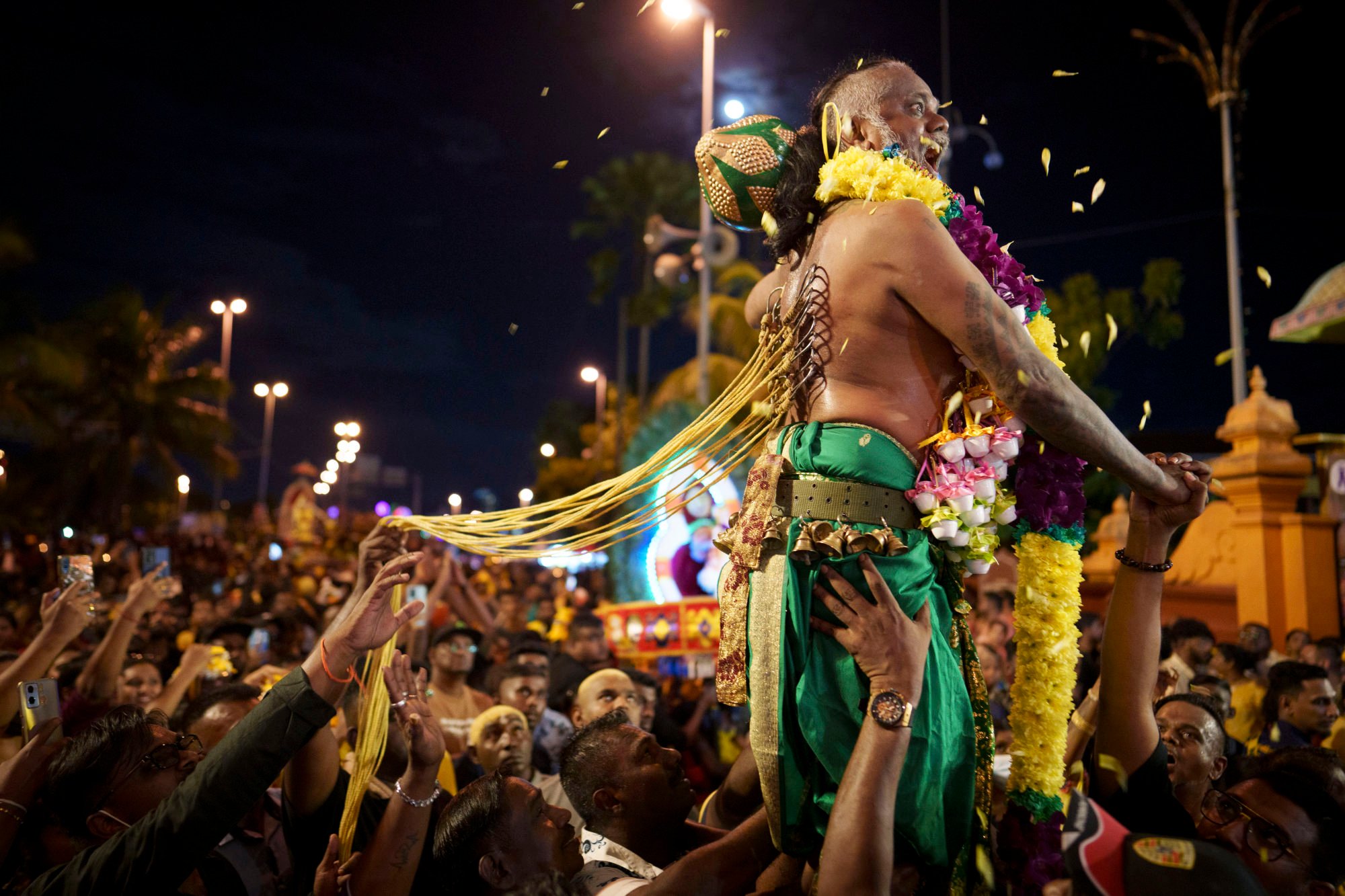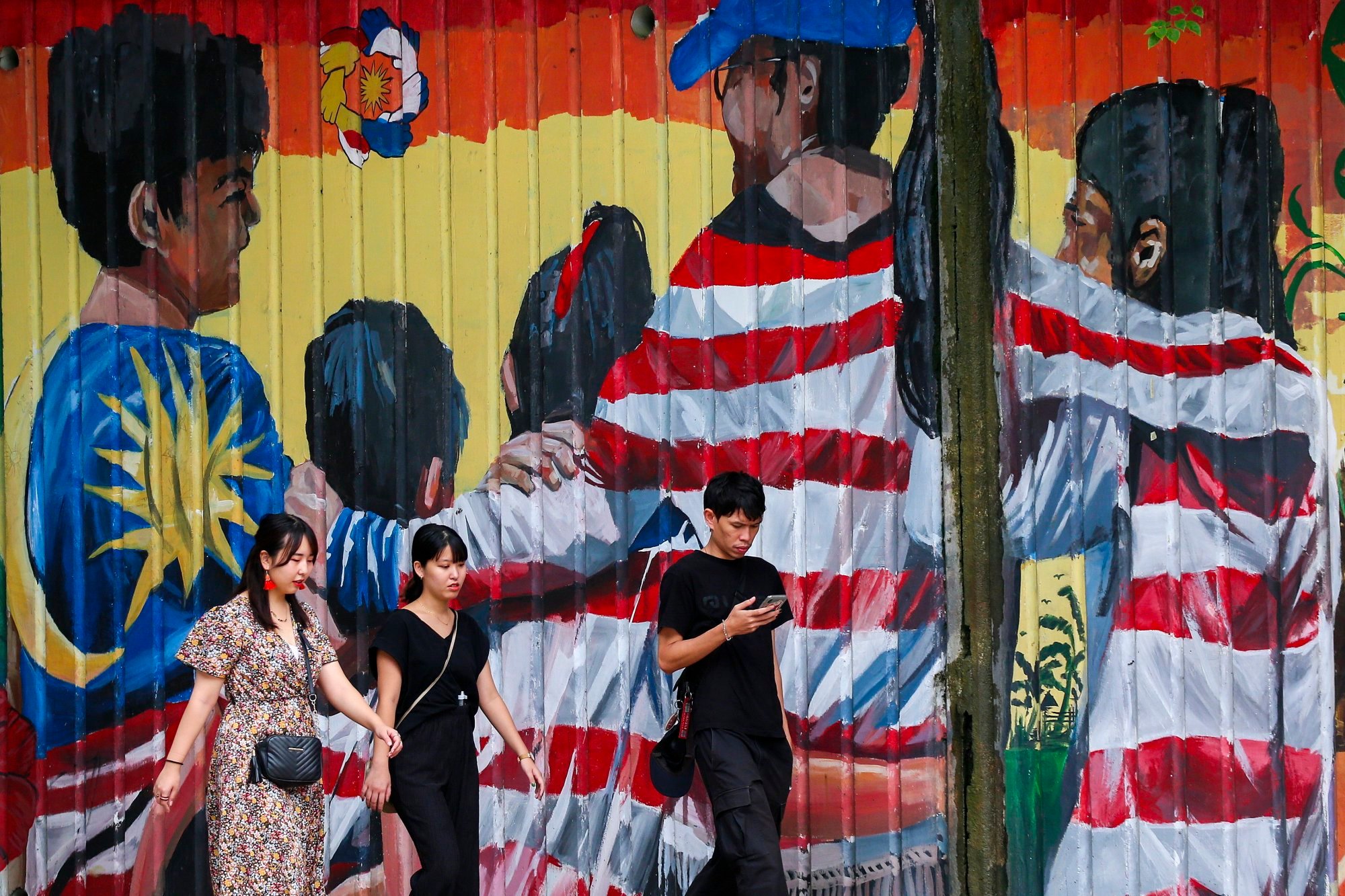“These days, the term keling is not seen favourably by many, so I do not use it. I was merely quoting the book,” Anwar told reporters at his official residence in Putrajaya on Saturday, addressing the backlash from his slip of the tongue.
“If there is a misunderstanding, I apologise. It is not my intention.”
While some prominent Indian leaders accepted Anwar’s apology, others including former Deputy Chief Minister of Penang P. Ramasamy rubbished the prime minister’s explanation.
“As the prime minister of the country, he should have been sensitive to the slurs used against the Indian community,” Ramasamy said in a statement.
“Whatever ways he justifies the use of the word ‘K’, the word is derogatory.”
Ramasamy, a former leader of the Anwar-aligned DAP party, quit in August after being dropped from contesting in the state elections despite holding the same seat for three terms, saying the party was sidelining its Indian members and supporters.
A divided Malaysia celebrates National Day with PM Anwar rallying for unity
A divided Malaysia celebrates National Day with PM Anwar rallying for unity
Others echoed the anger and disappointment with the prime minister of a multicultural nation.
“The PM should not have used it,” said refugee activist Mahi Ramakrishnan. “Isn’t he aware of the issues that have cropped up because of the use of the word? Isn’t he aware of the heated arguments?”
Maintaining racial harmony in multicultural Malaysia is a balancing act backlit by the horrors of race riots in the late 1960s between the majority Malay population and Chinese communities in Kuala Lumpur.
Similar clashes – albeit smaller and more localised – have continued to happen over the years, some involving Indians.

The Indian community in Malaysia, accounting for over 2 million people in 2020, has long suffered racial discrimination ranging from difficulties in getting jobs to renting houses. Some members of the community have been pressured towards crime and gangsterism, contributing to the disproportionate likelihood of arrest as well as deaths in custody, which often go unpunished.
A commentary on the marginalisation of Malaysian Indians on the journalism site Between The Lines said their social situation had “parallels with the African-American underclass in the United States”.
“The community today sits on the margins of society, with few avenues for upward mobility,” said writer Mangai Balasegaram.
Time to end the educational apartheid facing Malaysia’s ethnic minority groups
Time to end the educational apartheid facing Malaysia’s ethnic minority groups
Though the word has been thrust into the spotlight by the prime minister’s use of it, this is not the first time that Malaysians have debated the term.
In 2003, the Institute of Language and Literature, which is the custodian of the Malay language in Malaysia, was panned after readers found racial slurs printed in its dictionaries, including the compound words of keling mabuk todi – meaning an Indian drunk on toddy.
The institute later removed that and other offensive terms from its latest revision of the dictionary after public criticism and lawsuits.
Historian Sabri Zain has said that none of the references to the word in Malay literature from the 16th century – to the writings of the British in the 19th century – were used in any derogatory sense or intended as racial slurs. Instead, it was accepted as a word to describe the people of South India or their descendants in the Malaysian Peninsula.
“Banning a word is futile if you don’t address the racism – institutional or otherwise – behind its derogatory use,” Sabri wrote on his Malayan history website.

Sociologist Awang Azman Awang Pawi concurred, saying it was also commonly used in Malaysian Borneo. However, sentiments towards the word changed in the 1970s at the behest of the Indian community itself.
“This particularly started among the Indian Muslim community as a reaction to the word being used to disparage them by some people in the [Malay] majority,” Awang Azman said.
Despite the nuanced arguments over the historical use of language, Selangor state lawmaker Rajiv Risyakaran called for an end to the hairsplitting over the offensive term.
“When a minority community is telling you that it’s an insult, please respect it, not tell them how they should feel,” Rajiv said on X to Anwar.
“It’s important to understand why this term is insulting.”

